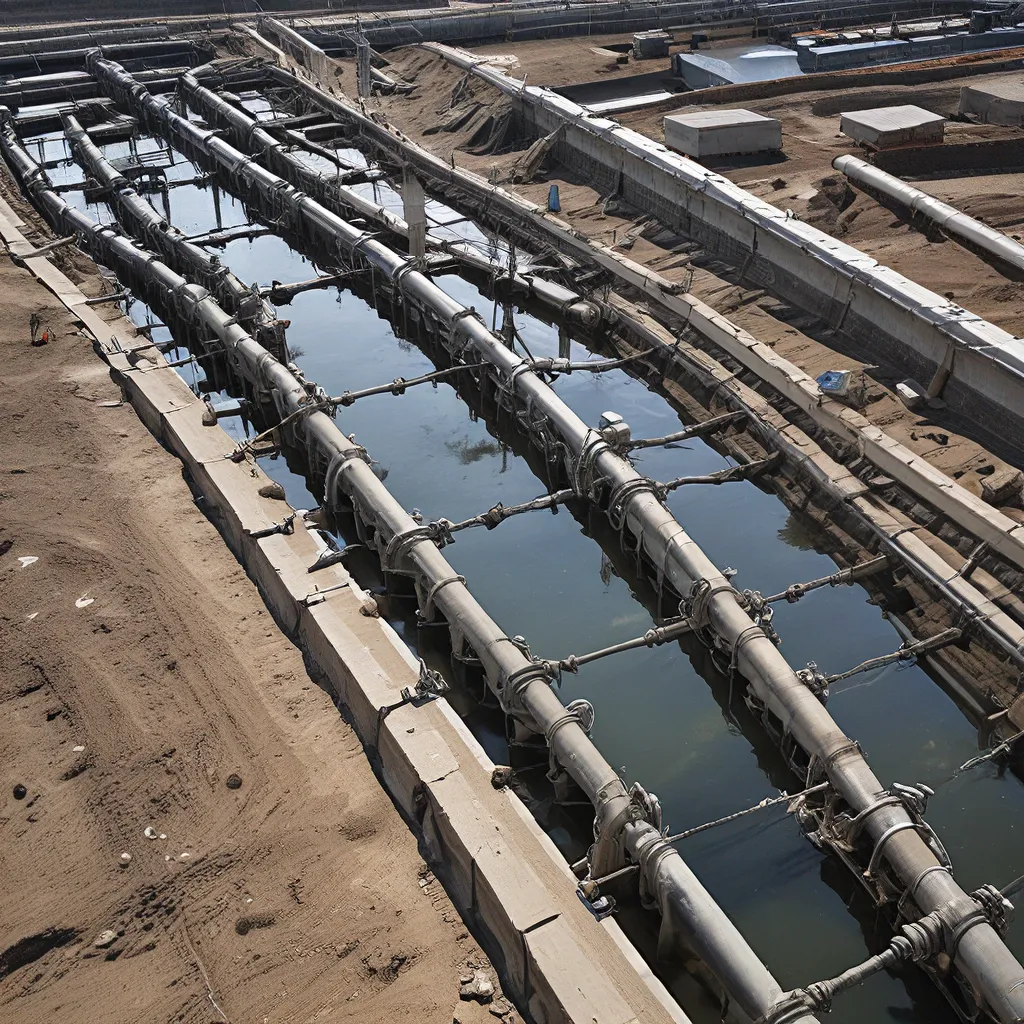
In today’s rapidly evolving world, the way we work and the way we manage our essential infrastructure are undergoing a profound transformation. As the gig economy continues to reshape traditional employment models, it’s becoming increasingly clear that this flexible, on-demand approach can also benefit the critical field of wastewater treatment.
Embracing the Gig Economy: A Boon for Wastewater Management
The rise of the gig economy, fueled by the popularity of platforms like Uber and Airbnb, has turned the traditional 9-to-5 job model on its head. Increasingly, professionals across diverse industries are embracing the freedom and control that comes with contract work, freelancing, and short-term engagements. And the wastewater treatment industry is no exception.
As the experts at Black & Veatch have observed, the nature of consulting work in the water, power, and oil and gas sectors aligns particularly well with the gig economy. The staffing requirements for these industries can vary significantly based on project and client needs, making the flexibility of the gig model a perfect fit.
By tapping into the gig economy, wastewater treatment companies can access a broader pool of specialized talent when they need it most. Whether it’s subject matter experts who can bring innovative ideas to the table or flexible contractors who can accommodate shifting project demands, this on-demand approach empowers organizations to enhance their capabilities and better serve their clients.
Navigating the Evolving Workforce: Strategies for Wastewater Professionals
The shift towards the gig economy is not just transforming how companies operate; it’s also reshaping the aspirations and priorities of the modern workforce. Today’s professionals, from millennials to baby boomers, are increasingly seeking flexibility, control, and the ability to focus on their areas of passion.
As the data suggests, the top advantages cited by gig workers include having sole control over their schedules, projects, and place of work, as well as the opportunity to earn extra income. This shift in mindset presents a unique opportunity for wastewater treatment professionals to tailor their careers to their individual needs and interests.
By embracing the gig economy, wastewater experts can pick and choose the projects they work on, set their own schedules, and explore different specialties within the industry. This newfound freedom not only benefits the individual but also empowers wastewater companies to harness the best talent when they need it, without the constraints of traditional full-time employment.
Sustainable Infrastructure: The Gig Economy’s Vital Role
As the world grapples with the pressing challenges of climate change and environmental sustainability, the spotlight has turned to the critical importance of building resilient and eco-friendly infrastructure. And the wastewater treatment industry is at the forefront of this pivotal transition.
Sustainable infrastructure projects, such as renewable energy sources, energy-efficient buildings, and advanced water management systems, are rapidly gaining momentum. These initiatives not only reduce greenhouse gas emissions and improve resource efficiency but also contribute to the overall well-being of communities.
In this context, the flexibility and specialized expertise of the gig economy become even more valuable. By tapping into a diverse pool of subject matter experts, wastewater treatment companies can stay at the forefront of these sustainable infrastructure developments, introducing innovative technologies and practices that enhance the efficiency and effectiveness of their operations.
The Future of Wastewater Treatment: A Confluence of Flexibility and Sustainability
As we look towards the future of wastewater treatment, it’s clear that the intersection of the gig economy and sustainable infrastructure holds immense potential. By embracing the on-demand model and harnessing the power of specialized talent, wastewater companies can adapt more quickly to evolving industry demands, respond to shifting client needs, and drive the development of cutting-edge solutions.
At the same time, the commitment to environmental sustainability in the wastewater industry is only growing stronger. Companies like Alpha Wastewater are leading the charge, integrating the latest green technologies and practices into their operations to minimize their environmental impact and contribute to a more resilient future.
The synergy between the gig economy and sustainable wastewater management promises to unlock a new era of flexibility, innovation, and environmental responsibility. As the industry continues to evolve, I’m excited to see how these two powerful forces will shape the future of water infrastructure and transform the way we approach this critical resource.
Conclusion: Embracing the Future, One Wastewater Project at a Time
The wastewater treatment industry is at a pivotal juncture, where the flexibility of the gig economy and the imperative of sustainable infrastructure converge to create a remarkable opportunity for progress. By leveraging the specialized talent and on-demand capabilities of the gig workforce, wastewater companies can adapt, innovate, and thrive in an ever-changing landscape.
As we continue to navigate the complexities of our water systems and the environmental challenges we face, I’m confident that the integration of the gig economy and sustainable practices will be a transformative force that propels the wastewater industry forward. It’s an exciting time to be a part of this dynamic and vital field, and I can’t wait to see what the future holds.